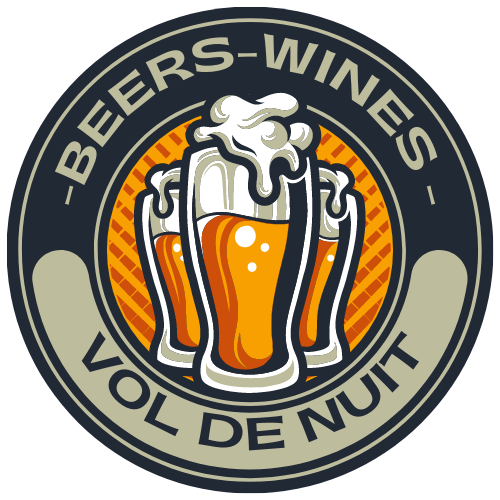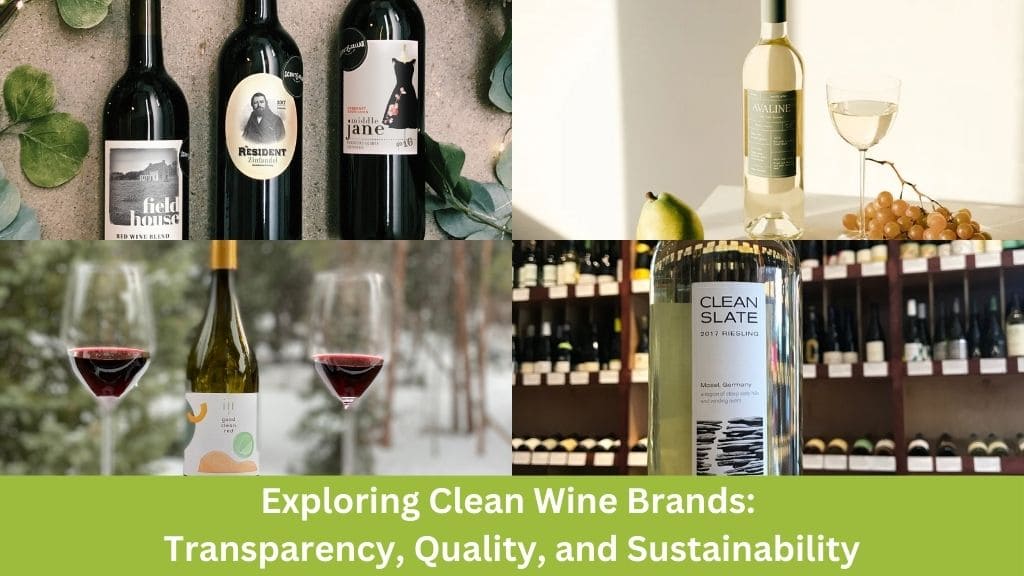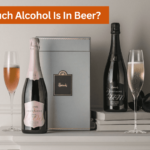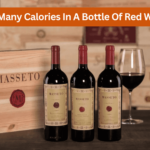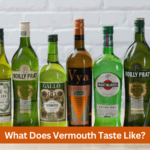In recent years, there has been a growing trend towards seeking healthier, more natural options in every aspect of life, including what we consume. This trend has extended to the world of wine, with consumers showing increased interest in clean wine brands. But what exactly are clean wine brands, and why are they becoming so popular? In this comprehensive guide, we’ll delve into the world of clean wine brands, exploring what sets them apart, highlighting some notable examples, and discussing their impact on the wine industry.
What is Clean Wine?
Clean wine is a term that refers to wines produced using minimal intervention methods and with a focus on natural, organic ingredients. Unlike conventional wines, which may contain additives, preservatives, and pesticides, clean wines are made with a commitment to transparency and sustainability throughout the production process.
Key Features of Clean Wine
- Organic Grapes: Clean wine brands often prioritize sourcing grapes from organic vineyards, where synthetic pesticides and fertilizers are avoided.
- Minimal Intervention: The winemaking process for clean wines involves minimal intervention, with an emphasis on allowing the natural flavors and characteristics of the grapes to shine through.
- No Additives: Clean wines are free from unnecessary additives and preservatives, ensuring a purer, more natural taste.
- Low Sulfites: While sulfites occur naturally in wine, clean wine brands aim to minimize their use, resulting in wines with lower sulfite levels.
- Transparency: Clean wine brands are transparent about their production methods, ingredients, and sourcing practices, allowing consumers to make informed choices about what they’re drinking.
Notable Clean Wine Brands
Avaline


Avaline Clean Wine, spearheaded by actress Cameron Diaz, has emerged as a prominent player in the wine industry, sparking both intrigue and controversy. Marketed as a “clean wine,” Avaline has garnered attention for its commitment to organic practices and transparency in labeling.
At the heart of the Avaline brand is its dedication to using organic grapes in the winemaking process. This commitment is reinforced by certifications from reputable organizations such as the USDA and Spanish organic certifiers, ensuring that the grapes used meet stringent organic standards. By adhering to these guidelines, Avaline aims to offer consumers a product that is free from synthetic pesticides and harmful chemicals commonly associated with conventional winemaking practices.
The term “clean wine” has been subject to scrutiny, with critics questioning its validity and accusing it of being a marketing ploy. However, Avaline’s emphasis on organic certification provides tangible evidence of its eco-friendly practices, distinguishing it from wines produced using conventional methods.
In addition to its organic grape sourcing, Avaline is transparent about its winemaking processes, disclosing information about additives and sulfite levels. This transparency allows consumers to make informed choices about the products they consume and aligns with Avaline’s mission of promoting a healthier, more sustainable approach to winemaking.
Despite the controversy surrounding the term “clean wine,” Avaline has garnered a loyal following among consumers seeking a more natural and environmentally conscious option. By prioritizing organic practices and transparency, Avaline Clean Wine aims to redefine the wine industry’s standards and pave the way for a more sustainable future.
Scout & Cellar Wine
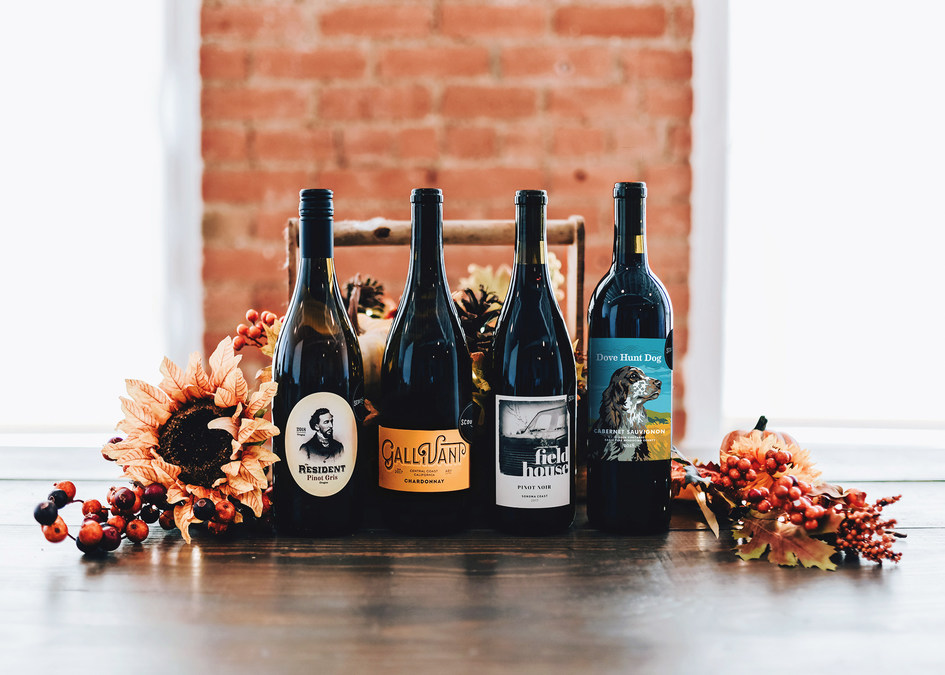
Scout & Cellar is a wine company based in Dallas, Texas, known for its emphasis on producing and selling what it calls “clean-crafted” wines. Founded in 2017 by Sarah Shadonix, a former attorney turned wine enthusiast, the company aims to offer wines that are free from synthetic pesticides, chemical additives, and excessive sulfites.
The motivation behind Scout & Cellar’s mission stems from Shadonix’s personal experience with wine-related health issues. She noticed that consuming even small amounts of wine made her feel ill, leading her to suspect that pesticides and chemicals in conventional wines were to blame. This experience inspired her to create a wine brand focused on offering a healthier alternative.
To ensure the quality and purity of its wines, Scout & Cellar claims to subject its products to rigorous testing processes. The company states that its wines undergo two rounds of independent lab testing to verify that they meet its standards for being “clean-crafted.” This term encompasses wines made from fruit grown without synthetic fertilizers, pesticides, herbicides, and fungicides, and produced without synthetic processing aids or sweeteners, with low levels of sulfites.
In addition to producing its own wines, Scout & Cellar also partners with other wineries to offer a curated selection under its own brand. This business model allows the company to expand its product range while maintaining its commitment to quality and purity standards.
Scout & Cellar operates using a multi-level marketing (MLM) structure, wherein individuals, called consultants, market the company’s wines directly to consumers. Consultants host tasting events in private settings such as homes, offices, or boutique establishments to promote Scout & Cellar’s products. However, this MLM model has faced criticism for its financial requirements and restrictions on consultants’ interactions with the media.
Good Clean Wine

Good Clean Wine is a new player in the beverage industry, revolutionizing the concept of wine with its emphasis on purity, sustainability, and ethical sourcing. Unlike traditional wines, Good Clean Wine prioritizes transparency and quality ingredients, catering to consumers who value both taste and ethical consumption.
One of the distinguishing features of Good Clean Wine is its commitment to clean farming practices. The grapes used in its production are cultivated using sustainable methods, free from synthetic pesticides and herbicides. This ensures not only the health of the environment but also the well-being of the farmers and surrounding communities.
Furthermore, Good Clean Wine takes pride in its minimal intervention winemaking process. By using organic and biodynamic practices, the brand maintains the integrity of the grapes, allowing their natural flavors to shine through without the need for excessive additives or processing. This results in wines that are not only delicious but also free from unnecessary chemicals and additives commonly found in conventional wines.
Moreover, Good Clean Wine places a strong emphasis on transparency and traceability. Consumers can easily access information about the origin of the grapes, the winemaking process, and the company’s sustainability practices. This level of transparency builds trust and confidence among consumers who are increasingly mindful of the ethical and environmental implications of their purchasing decisions.
In addition to its commitment to sustainability and transparency, Good Clean Wine also prioritizes social responsibility. The company actively supports initiatives aimed at promoting environmental conservation, fair labor practices, and community development in wine-producing regions around the world. By aligning its business practices with ethical and socially responsible values, Good Clean Wine demonstrates its dedication to making a positive impact beyond just the quality of its products.
Clean Slate Wine

Clean Slate Wine, specifically Clean Slate Riesling, is a renowned white wine originating from the Mosel region in Germany. It is characterized by its crisp elegance and versatile flavor profiles, making it a favorite among wine enthusiasts worldwide.
This wine is made primarily from Riesling grapes, an aromatic variety that thrives in various climates and soil types. The unique terroir of the Mosel region, with its slate-rich soil and cool climate, contributes to the distinct characteristics of Clean Slate Riesling.
Clean Slate Riesling exhibits an enticing aroma featuring notes of pear, citrus, apple, and lemon. On the palate, it offers a balanced combination of dryness, acidity, and sweetness, with subtle hints of peach, apricot, and minerals. Its smooth finish leaves a pleasant aftertaste, making it suitable for pairing with a wide range of dishes.
One notable aspect of Clean Slate Riesling is its ability to complement Asian and spicy cuisines exceptionally well. Its versatility makes it an ideal choice for pairing with various foods, from sushi and curries to roast pork and German dishes like bratwurst and sauerkraut.
The wine is presented in an elegant Bordeaux bottle, reflecting its premium quality despite its relatively affordable price range. Clean Slate Riesling is produced through a partnership between Moselland, a longstanding German wine-growing cooperative, and Winebow, a reputable US importer and distributor of fine wines.
Waterbrook Clean Wines
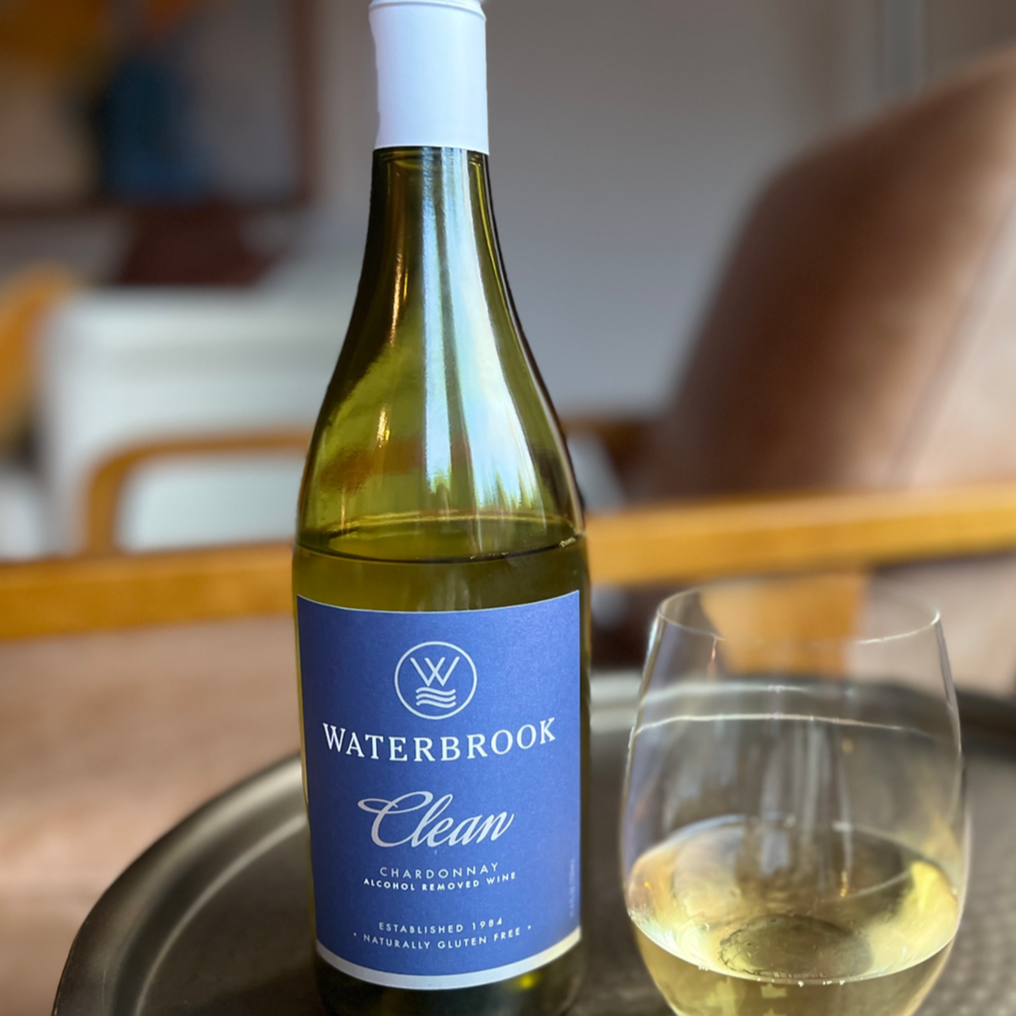
Waterbrook Clean Wines represents a pioneering venture into the realm of alcohol-free beverages by Waterbrook Winery, one of Washington state’s esteemed producers. The concept of Clean Wines emerged from a desire to offer consumers a premium non-alcoholic alternative that retained the essence and complexity of traditional wines.
Crafted with meticulous attention to detail, Clean Wines are made from vinifera grapes sourced from Washington State’s renowned Columbia Valley. This choice reflects Waterbrook’s commitment to quality, utilizing grapes from a region known for its optimal growing conditions and distinctive terroir.
The creation of Clean Wines was not without its challenges. Initially met with skepticism by winemaker Hal Landvoigt, the project demanded innovative solutions to replicate the intricate flavors typically associated with alcoholic wines. Alcohol, it was discovered, plays a pivotal role in enhancing flavor complexity by opening flavor receptors, a realization that prompted a reevaluation of the winemaking process.
To achieve the desired result, Clean Wines undergo a specialized alcohol removal process using spinning cone filtration. This method ensures that the integrity of the wine is maintained while eliminating alcohol, allowing Clean Wines to be accurately described as “alcohol removed wine.”
The final product is a testament to Waterbrook’s dedication to excellence. Clean Wines boast tasting notes reminiscent of traditional wines, including characteristics such as black plum, dark cherry, oaky tannins, cocoa powder, and black pepper. Natural flavors are carefully incorporated to enhance complexity, ensuring a satisfying drinking experience.
Beyond its commitment to quality, Waterbrook Clean Wines embody a broader vision of inclusivity within the wine industry. By offering a premium non-alcoholic alternative, Waterbrook seeks to eliminate barriers to enjoyment, whether for reasons of health, wellness, or personal preference.
The Impact of Clean Wine Brands
Shifting Consumer Preferences
The rise of clean wine brands reflects a broader shift in consumer preferences towards healthier, more sustainable products. As people become more conscious of what they’re putting into their bodies, they’re seeking out cleaner, more natural options in all aspects of their lives, including their wine choices.
Challenging Conventional Wine Industry Practices
Clean wine brands are challenging the status quo of the conventional wine industry, which has long relied on additives and preservatives to achieve desired flavors and characteristics. By prioritizing transparency and sustainability, clean wine brands are setting a new standard for what constitutes quality wine.
Driving Innovation
The emergence of clean wine brands is driving innovation within the wine industry, encouraging producers to explore alternative winemaking methods and ingredients. This focus on sustainability and natural production methods has the potential to benefit both consumers and the environment in the long run.
Conclusion
Clean wine brands represent a growing segment of the wine market, catering to consumers who prioritize health, transparency, and sustainability. With their commitment to using organic grapes, minimal intervention winemaking techniques, and transparency in production, clean wine brands are reshaping the way we think about and consume wine. As consumer demand for cleaner, more natural products continues to grow, it’s likely that clean wine brands will play an increasingly significant role in the wine industry for years to come.clean wine brands
I’m Chen Mina, from Vol de Nuit, who has a special passion for bartending, especially mixing wine, beer, and cooktail. Here you will find content about alcoholic beverages, I will bring you knowledge that few people know about this drink.
